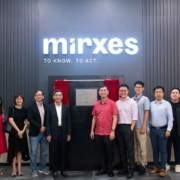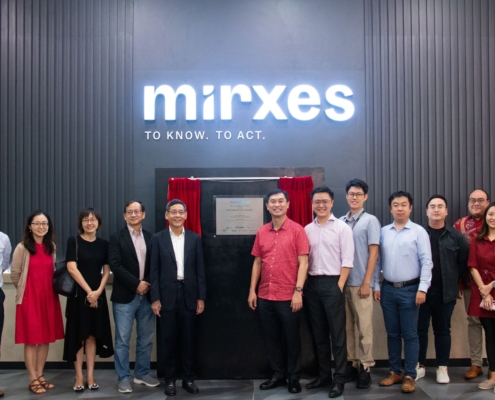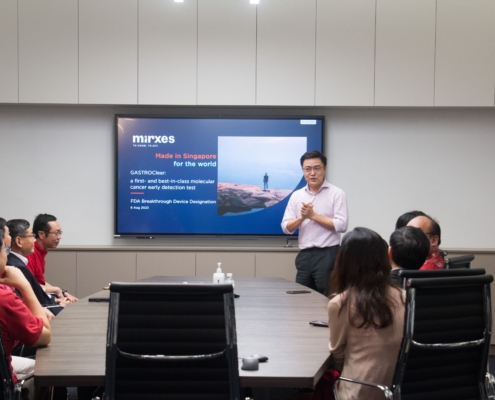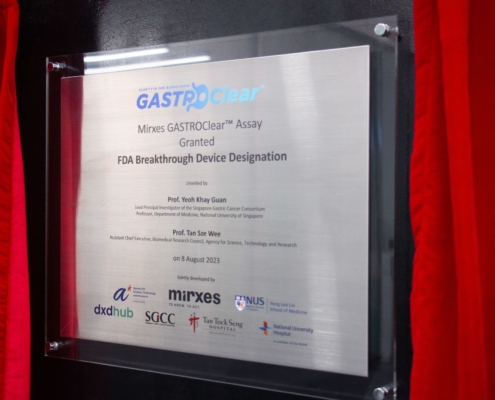The American Association for Cancer Research (AACR) Annual Meeting is one of the most anticipated events in the field of oncology, bringing together researchers, clinicians, industry professionals, and advocates to share groundbreaking discoveries and advancements in cancer research. The theme of the AACR Annual Meeting 2024, “Inspiring Science, Fueling Progress, Revolutionizing Care,” sets the tone for an event focused on driving transformative change in cancer research and patient outcomes. According to the conference chairs, this year’s theme underscores the pivotal role of scientific inspiration in propelling progress and innovation across the cancer care continuum.
In line with the theme of innovation, several hot topics are expected to take center stage at the AACR Annual Meeting 2024. Data science, artificial intelligence (AI), and technology will feature prominently in discussions, reflecting the growing importance of leveraging advanced computational methods to accelerate cancer research and improve patient outcomes. Sessions dedicated to these topics will explore how data-driven approaches are reshaping our understanding of cancer biology, facilitating precision medicine initiatives, and driving the development of novel therapeutics.
Among the myriad of abstracts to be presented at the AACR Annual Meeting 2024, those focusing on spatial biology and the tumor microenvironment are generating significant interest. Spatial biology, a burgeoning field within cancer research, investigates the spatial organization of cells and biomolecules within tissues, offering insights into tumor heterogeneity, immune cell interactions, and therapeutic responses. Abstracts highlighting advances in spatial profiling technologies, imaging modalities, and computational analyses promise to deepen our understanding of the complex interplay between tumor cells and their microenvironment. The opening talk for AACR will be given by the new President of AACR, Philip Greenberg.
On Friday, April 5th, there will be a session titled “Single Cell Analysis for Bench-based Scientists”. This workshop aims to equip bench-based and clinical scientists with the latest analysis methods for interpreting data, extracting insights, and applying biological intuition while avoiding common misconceptions. It provides guidance on analyzing single-cell RNA sequencing data, covering state-of-the-art methods, best practices for normalization, visualization, clustering, and cell typing, with all workshop code freely available for adaptation. Roshan Sharma, from the Memorial Sloan Kettering Cancer Center, will discuss best practices for pre-processing of single-cell RNA-seq data. After Roshan’s talk, Orr Ashenberg, from the Broad Institute, will discuss how their group clusters and interprets single-cell RNA-seq data. Their lab developed a systematic toolbox for fresh and frozen tumor processing for both scRNA-Seq and snRNA-Seq. Their toolbox includes experimental workflow and methods, computational pipelines and evaluation metrics. To validate their toolbox, they tested eight different tumor types, each with unique tissue characteristics. Their computational pipelines can be found at https://github.com/klarman-cell-observatory/HTAPP-Pipelines. Details of their findings will be presented.
On Saturday, April 6 there will be a session on the Lineage Plasticity in Tumor Evolution and Acquired Resistance. In the context of cancer, lineage plasticity is the ability of tumor cells to transition from one developmental pathway to another. Talks in this session will discuss how this lineage plasticity serves as a mechanism of therapeutic resistance. This session will be chaired by Charles Rudin, from the Memorial Sloan Kettering Cancer Center. He will be giving a talk on strategies his group is using to constrain lineage plasticity in prostate cancer. Katerina Politi, from the Yale Cancer Center, present her findings on the resistance to tyrosine kinase inhibitors in lung adenocarcinomas due to lineage plasticity using epigenetic processes. Thomas Graeber, from The Broad Stem Cell Research Center at UCLA, will present data on his lab’s work on the underlining the mechanisms of resistance to BRAF inhibition during treatment of melanoma. To combat this resistance, his lab has been investigating how ferroptosis-inducing drugs can be used to increase the efficacy of targeted and immune therapies.
On Sunday, April 7th there will be a session titled: “Unlocking Spatial Complexity: Harnessing Machine Learning for Spatial Biology Insights.” In this session, recent advances in spatial technologies will be discussed. Talks will cover how spatial transcriptomics have revolutionized our understanding of genes and proteins in tissues, offering detailed analysis at cellular and subcellular levels. These breakthroughs have provided crucial insights from patient samples like tumor biopsies, aiding in treatment selection and understanding treatment responses. To tackle the complexity of spatial datasets, this session focuses on addressing computational challenges in spatial biology and showcases the application of machine learning algorithms to decode tissue structure and cellular organization, particularly in cancer research. During this session Raphael Gottardo of CHUV Lausanne University Hospital in Switzerland will give a talk on the computational challenges faced when using data from spatial biology experiments. His lab recently published a paper in the journal Immunity that describes immune cell interactions within the tumor microenvironment, providing insights into tumor immune evasion mechanisms and potential therapeutic avenues.
On Monday morning, April 8 there will be a session titled Profiling Tumor Ecosystems in Native Tissue Context chaired by Christine A. Iacobuzio-Donahue. Her lab takes the approach that cancer is a disease of evolution and thus is subject to Darwinian selection. The Iacobuzio-Donahue lab utilizes Pancreatic cancer as a model system due to its high metastatic rate and low survival rates. Her research aims to describe how subclonal genetic evolution within primary tumors selects for metastatic phenotypes, and whether specific genetic alterations target core pathways leading to metastasis. They also investigate the morphologic, immunologic, and microenvironmental characteristics of pro-metastatic subclones. The goal of the lab is to find translational and therapeutic opportunities by studying the real-time dynamics of Darwinian selection in human cancer cells across various tumor types. Also in this session, Joakim Lundeberg, from the Science for Life Laboratory in Sweden, will gave a talk on using spatial biology to describe the cancer ecosystem on breast and prostate cancer. His lab studies the build-up of mutations that occur premalignant cells and how certain cells undergo clonal expansion. In his talk he will discuss the molecular interactions between cancer cells and other cell types in the tumor microenvironment (TME). These other cell types the cancer cells interact with are often immune and other tumor-associated cells. To characterizing these TME interactions, his lab uses multiomics computational and experimental methodologies approaches on tumor tissue sections to understand the mechanisms driving malignant transformation. By using high-resolution spatial gene expression data, they are able spatially map B-cells and T-cells (BCR and TCR repertoire) in the MTE and create 3D models of the tumor ecosystem.
Later in the day on Monday April 8th there will be a session focusing on the Understanding and Predicting Tumor Evolution. This session will be chaired by Andrea Sottoriva, the Head of the Computational Biology Research Centre at Human Technopole. He will also give a talk titled ” Darwinian evolution of the epigenome and non-Darwinian cell plasticity in cancer.” His lab is interested in the co-evolution of both genomic and epigenetic changes that cause phenotypic variation between cancer cells.
On Tuesday morning, April 9th there will be a session titled “Evolution of the Genome, Microenvironment, and Host through Metastasis.” In this session, David Lyden, of Weill Cornell Medicine in New York City will discuss multi-organ systemic therapies to combat metastatic disease. His lab is interested in molecular, cellular, and metabolic alterations that cause the formation of pre-metastatic niches (PMNs). These PMNs become future sites of metastasis. His laboratory has been working on finding the differences in PMNs based on the organs, such as the lung, liver, and pancreas, that they originate from. They are using this information to develop therapies for metastatic disease prevention with the knowledge that the treatment must target multiple organs.
Also, during this session, Sarah-Maria Fendt from VIB-KU Leuven in Belgium, will discuss the metastasis mouse models her lab is using to study lung metastases in patients with breast cancer. Specifically, they are investigating the aggressiveness of cancer cells in metastases that is driven by metabolite signaling. They are now using inhibitors that target the molecular mechanism of the metabolite signaling in mouse models to block metastasis formation.
Keywords: Tumor microenvironment (TME), tumor evolution, spatial biology, transcriptomics, genomics, multiomics, single cell analysis, lineage plasticity, prostate cancer, lung cancer, breast cancer, melanoma.






